The long-term competitiveness of grass-based systems is under threat from high-input systems in the US, according to New Zealand-based adviser Paul Bird.
Bird was speaking at the Positive Farmers Conference held in Cork on Wednesday, where he said that some US confinement systems are becoming increasingly profitable due to light touch regulation and renewable energy opportunities.
To remain competitive, he said that grass-based dairy farmers must refocus on cost control, which he said was a challenge due to input cost inflation.
He said that the greatest correlation with profit on grass-based dairy farms is cost of production and grazed grass per hectare and this is what farmers should be focusing on most, rather than production.
'Desire to drive tractors'
“The issue is we have a natural human desire to drive tractors and focus on per-cow production and most people want to do that.
"So if you’re in the minority and happy to focus on grazed pasture and not tractors, you have a competitive advantage.
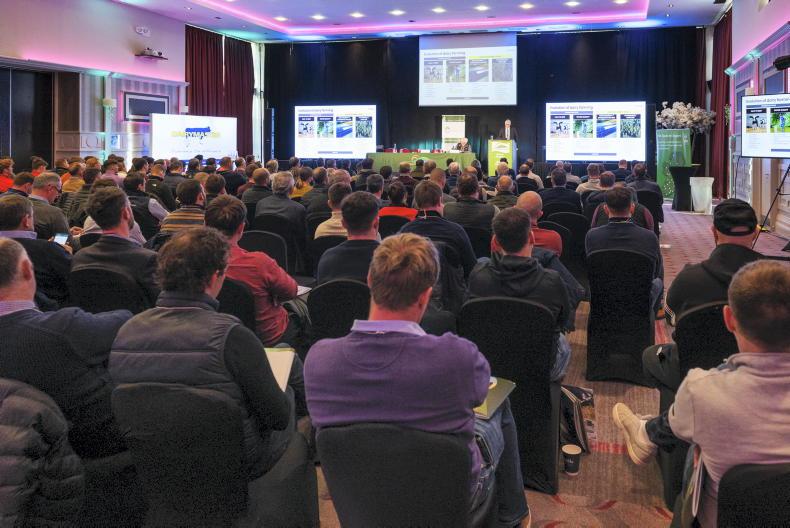
The annual Positive Farmer's COnference was held at the Radisson Blu Hotel in Little Island on Wednesday and Thursday last. Around 350 farmers and people in the industry attended from across Ireland and the UK. \ Andy Gibson.
“If you’re a young farmer coming through and thinking about growing your business, over time you will have a competitive advantage if you don’t get sidelined by tractors and you’re really excited by grazed pasture,” he said.
Bird added that most sales people are trained negotiators schooled in the art of making a sale and suggested that farmers need to have a shopping list of what items they need to run the farm and stick to that.
Financial performance
He stressed the importance of benchmarking financial performance and making changes when compared with peers, saying the only value in benchmarking is by learning from others, which enables improved performance.
On the subject of budgeting, Bird said that the best farmers will continuously adjust the budget throughout the year based on changing circumstances. They will try to cut costs wherever possible in order to meet profit targets.
The long-term competitiveness of grass-based systems is under threat from high-input systems in the US, according to New Zealand-based adviser Paul Bird.
Bird was speaking at the Positive Farmers Conference held in Cork on Wednesday, where he said that some US confinement systems are becoming increasingly profitable due to light touch regulation and renewable energy opportunities.
To remain competitive, he said that grass-based dairy farmers must refocus on cost control, which he said was a challenge due to input cost inflation.
He said that the greatest correlation with profit on grass-based dairy farms is cost of production and grazed grass per hectare and this is what farmers should be focusing on most, rather than production.
'Desire to drive tractors'
“The issue is we have a natural human desire to drive tractors and focus on per-cow production and most people want to do that.
"So if you’re in the minority and happy to focus on grazed pasture and not tractors, you have a competitive advantage.

The annual Positive Farmer's COnference was held at the Radisson Blu Hotel in Little Island on Wednesday and Thursday last. Around 350 farmers and people in the industry attended from across Ireland and the UK. \ Andy Gibson.
“If you’re a young farmer coming through and thinking about growing your business, over time you will have a competitive advantage if you don’t get sidelined by tractors and you’re really excited by grazed pasture,” he said.
Bird added that most sales people are trained negotiators schooled in the art of making a sale and suggested that farmers need to have a shopping list of what items they need to run the farm and stick to that.
Financial performance
He stressed the importance of benchmarking financial performance and making changes when compared with peers, saying the only value in benchmarking is by learning from others, which enables improved performance.
On the subject of budgeting, Bird said that the best farmers will continuously adjust the budget throughout the year based on changing circumstances. They will try to cut costs wherever possible in order to meet profit targets.





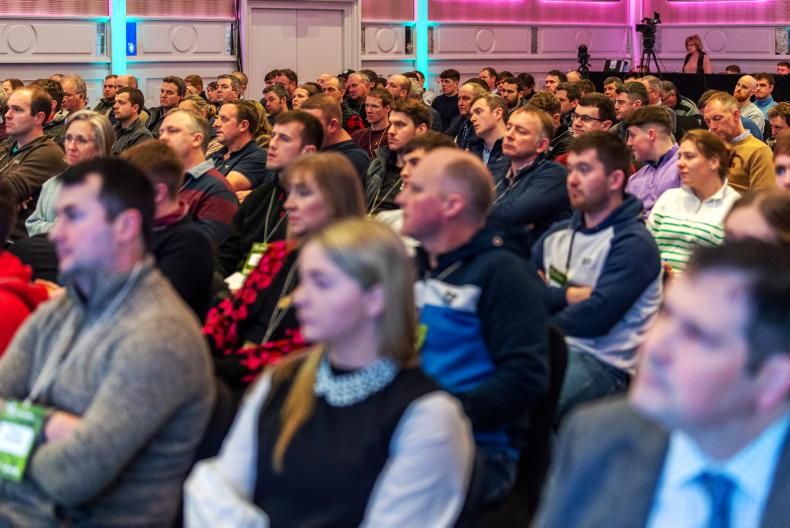
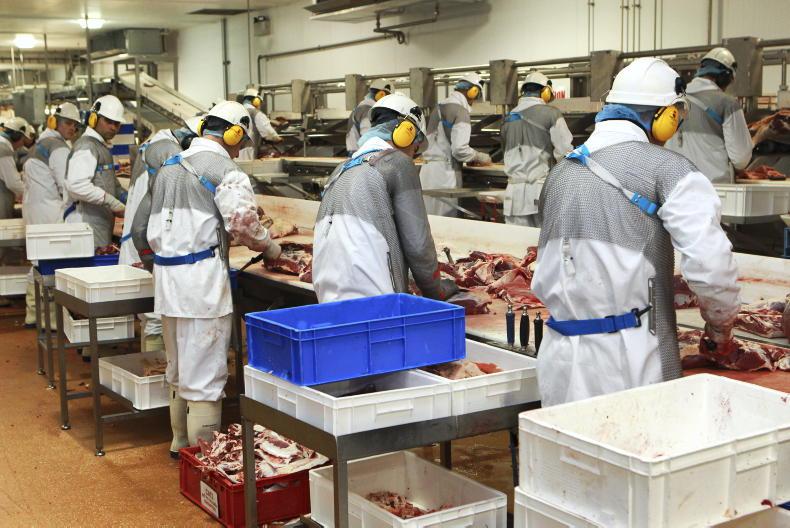
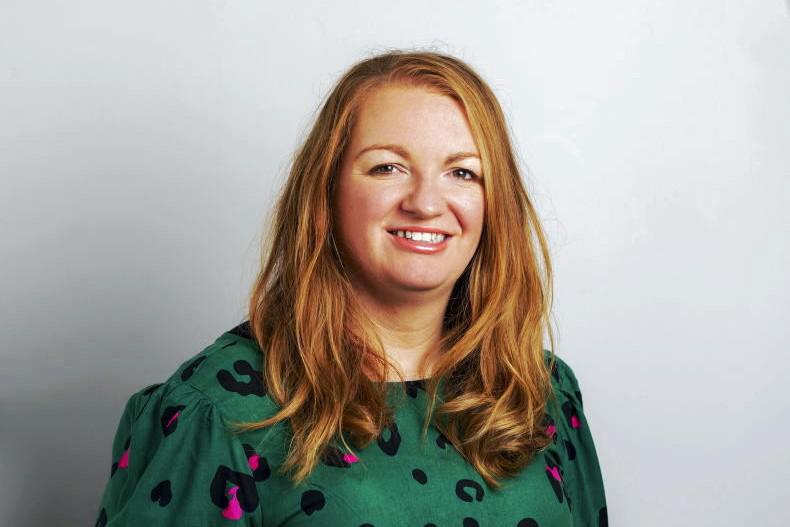
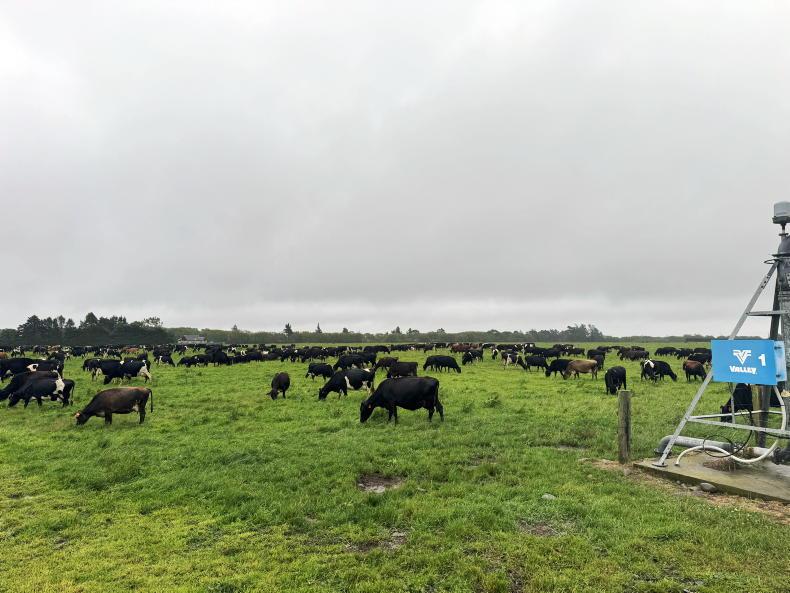
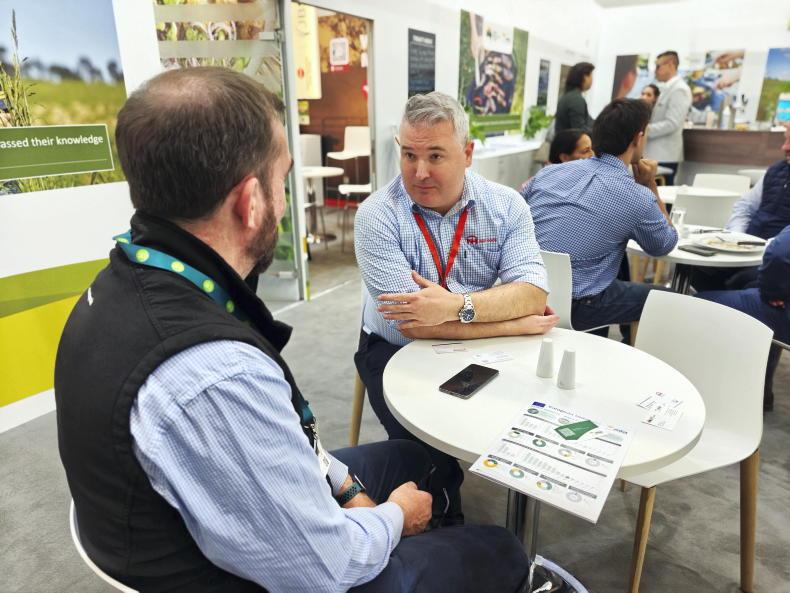
SHARING OPTIONS